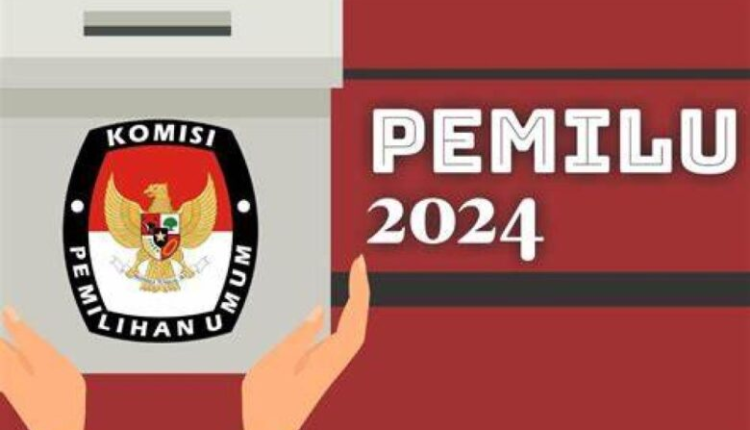Respect Election Results, Dissatisfaction Can Take Legal Mechanisms
By: Suti Nurhayati
General elections (Pemilu) are an important milestone in a country’s democratic journey where the people have the opportunity to choose their leaders and representatives. However, in some cases, election results can cause dissatisfaction among the public.
Nevertheless, it is our obligation as citizens to respect the democratic process and find a solution to this dissatisfaction through the legal mechanisms that have been provided.
Vice President (Wapres) KH Ma’ruf Amin appealed to the public to take advantage of available legal mechanisms, such as filing a lawsuit with the Constitutional Court (MK) and the Election Supervisory Body (Bawaslu) if there is distrust or dissatisfaction with the provisional results of the 2024 election calculated in the Recapitulation System Voice (Sirekap).
He emphasized that the calculations in Sirekap are not the final reference for the election results, which will be officially announced by the General Election Commission (KPU). In this context, it is important for the public to understand that the election process is still ongoing and the final results have not yet been determined.
Currently, there is talk of a right to inquiry being launched in the House of Representatives (DPR) regarding allegations of fraud in the election. However, the National Coordinator of the Indonesian Moeda Formation (FIM), Syifak Muhammad Yus, emphasized that the right to inquiry would not have an impact on the results of the 2024 presidential election.
According to him, the law stipulates that the presidential inauguration must take place in October 2024, and the right to inquiry will not change this fact. This statement was also conveyed by Professor of Constitutional Law and Cawapres 03, Mahfud MD, who explained that the right to inquiry was a political effort that would not influence the decisions of the KPU or MK.
Constitutional Law expert, Yusril Ihza Mahendra, added that the right to inquiry proposed by the DPR would not invalidate the election results. The right to inquiry is an instrument to investigate an issue that is considered important, but will not change the Constitutional Court’s decision regarding the election results. Nevertheless, Yusril respects the efforts of several parties, including presidential candidate number 3, Ganjar Pranowo, who wants to use the right of inquiry to investigate allegations of fraud.
In this context, it needs to be noted that efforts to roll out the right to inquiry in the DPR are not simple. This process requires the support of a majority of DPR members and will take quite a long time. Whatever the outcome, the recommendations from the DPR will not influence the Constitutional Court’s decision. Therefore, even though the right to inquiry is a constitutional right of the DPR, the public needs to understand that the election results will be determined by the Constitutional Court and not by the DPR.
Fraud in elections is a serious concern, and several parties have suggested that society take legal action through class action. Political observer Eep Saefulloh Fatah emphasized that people who feel disadvantaged by alleged fraud can take legal action.
Class action is one option to prove allegations of fraud that occurred in the 2024 elections. However, this step needs to be well organized, considering that there is no precedent regarding class actions in the context of election results in Indonesia.
The Acting Mayor of Serang, Yedi Rahmat, invited the public to respect the results of the election vote recapitulation which will be determined by the local KPU. He emphasized the importance of politeness, tolerance and cooperation in responding to election results. Apart from that, Kiai Azaim Ibrahimy from the Salafiyah Syafi’iyah Islamic Boarding School, Sukorejo, Situbondo, also invited the public to respect the election results, while praying that the country remains safe and prosperous.
The Regent of Situbondo, Karna Suswandi, also emphasized the importance of sportsmanship and calm in responding to the election results. He emphasized that whoever is elected as leader will return to the will of the people. In this context, regional governments and the entire community have the responsibility to maintain regional stability and maintain national unity and integrity.
Regarding the process of resolving election disputes, it is necessary to understand in more depth the role of available legal mechanisms. The Constitutional Court (MK) is an institution that has the authority to decide election results disputes submitted by parties who feel disadvantaged or are dissatisfied with the election results. In this case, the Constitutional Court has a very important role in ensuring the justice and legitimacy of the democratic process.
Apart from the Constitutional Court, the Election Supervisory Body (Bawaslu) also plays an important role in monitoring and handling alleged violations in elections. Bawaslu has the authority to conduct investigations and provide recommendations to law enforcement agencies if sufficient evidence is found related to election violations. Thus, Bawaslu is also an integral part of the legal mechanism which aims to maintain the integrity and legitimacy of the election process.
In facing various differences of opinion and dissatisfaction with election results, we as citizens have a responsibility to respect the existing democratic process. By prioritizing respectful attitudes, political maturity, and constructive dialogue, we can maintain national peace and unity and strengthen the foundations of democracy.
Therefore, let us together maintain peace and national unity, respect the democratic process, and build a better future for future generations. With our cooperation and commitment, we can achieve this noble ideal and make Indonesia a more advanced and dignified country.
The author is a contributor to Lapak Baca Indonesia
